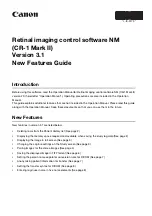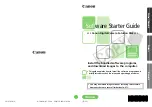
AT-S63 Management Software Features Guide
Section V: Spanning Tree Protocols
249
Overview
As mentioned in Chapter 22, ”Spanning Tree and Rapid Spanning Tree
Protocols” on page 235, STP and RSTP are referred to as single-instance
spanning trees that search for physical loops across all VLANs in a
bridged network. When loops are detected, the protocols stop the loops by
placing one or more bridge ports in a blocking state.
As explained in “Spanning Tree and VLANs” on page 246, STP and RSTP
can result in VLAN fragmentation where VLANs that span multiple bridges
are connected together with untagged ports. The untagged ports creating
the links can represent a physical loop in the network, which are blocked
by spanning tree. This can result in a loss of communication between
different parts of the same VLAN.
One way to resolve this, other than by not activating spanning tree on your
network, is to link the switches using tagged ports, which can handle traffic
from multiple VLANs simultaneously. The drawback to this approach is
that the link formed by the tagged ports can create a bottleneck to your
Ethernet traffic, resulting in reduced network performance.
Another approach is to use the Multiple Spanning Tree Protocol (MSTP).
This spanning tree shares many of the same characteristics as RSTP in
that it features rapid convergence and has many of the same parameters.
But the main difference is that while RSTP, just like STP, supports only a
single-instance spanning tree, MSTP supports multiple spanning trees
within a network.
The following sections describe some of the terms and concepts related to
MSTP. If you are not familiar with spanning tree or RSTP, you should first
review “Overview” on page 237.
Note
Do not activate MSTP on the AT-9400 Switch without first
familiarizing yourself with the following concepts and guidelines.
Unlike STP and RSTP, you cannot activate this spanning tree
protocol on a switch without first configuring the protocol
parameters.
Note
The AT-S63 MSTP implementation complies fully with the new IEEE
802.1s standard and should be interoperable with any other
vendor’s fully compliant 802.1s implementation.
Summary of Contents for AT-S63
Page 14: ...Figures 14 ...
Page 18: ...Tables 18 ...
Page 28: ...28 Section I Basic Operations ...
Page 58: ...Chapter 1 Overview 58 ...
Page 76: ...Chapter 2 AT 9400Ts Stacks 76 Section I Basic Operations ...
Page 96: ...Chapter 5 MAC Address Table 96 Section I Basic Operations ...
Page 114: ...Chapter 8 Port Mirror 114 Section I Basic Operations ...
Page 116: ...116 Section II Advanced Operations ...
Page 146: ...Chapter 12 Access Control Lists 146 Section II Advanced Operations ...
Page 176: ...Chapter 14 Quality of Service 176 Section II Advanced Operations ...
Page 196: ...196 Section III Snooping Protocols ...
Page 204: ...Chapter 18 Multicast Listener Discovery Snooping 204 Section III Snooping Protocols ...
Page 216: ...Chapter 20 Ethernet Protection Switching Ring Snooping 216 Section III Snooping Protocols ...
Page 218: ...218 Section IV SNMPv3 ...
Page 234: ...234 Section V Spanning Tree Protocols ...
Page 268: ...268 Section VI Virtual LANs ...
Page 306: ...Chapter 27 Protected Ports VLANs 306 Section VI Virtual LANs ...
Page 320: ...320 Section VII Internet Protocol Routing ...
Page 360: ...Chapter 30 BOOTP Relay Agent 360 Section VII Routing ...
Page 370: ...Chapter 31 Virtual Router Redundancy Protocol 370 Section VII Routing ...
Page 372: ...372 Section VIII Port Security ...
Page 402: ...Chapter 33 802 1x Port based Network Access Control 402 Section VIII Port Security ...
Page 404: ...404 Section IX Management Security ...
Page 436: ...Chapter 36 PKI Certificates and SSL 436 Section IX Management Security ...
Page 454: ...Chapter 38 TACACS and RADIUS Protocols 454 Section IX Management Security ...
Page 462: ...Chapter 39 Management Access Control List 462 Section IX Management Security ...
Page 532: ...Appendix D MIB Objects 532 ...
















































